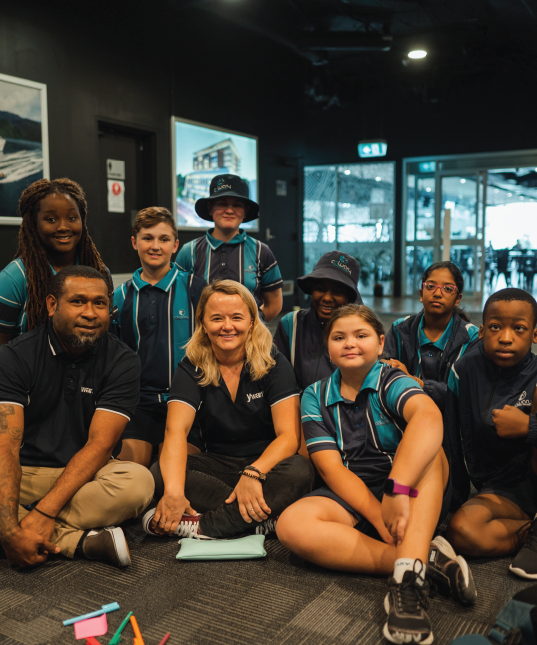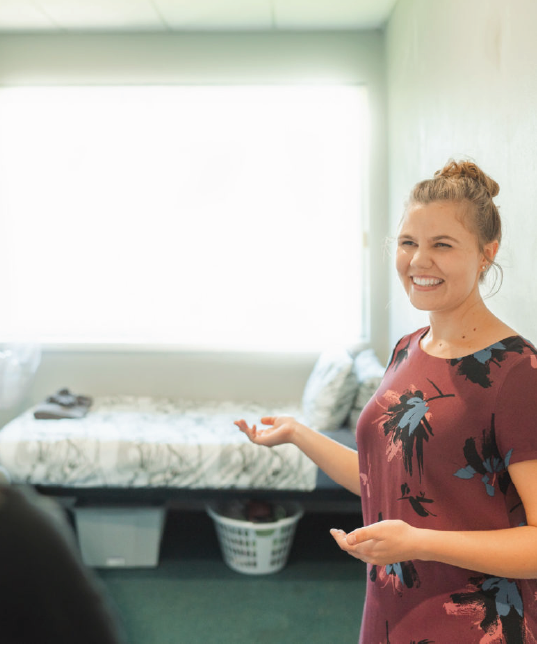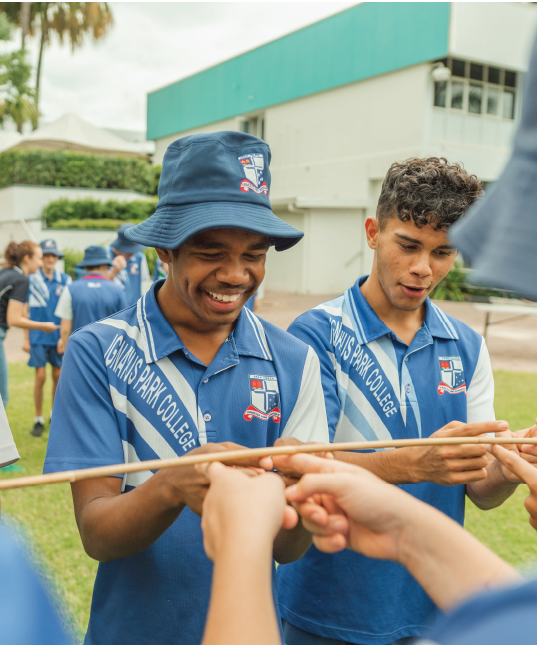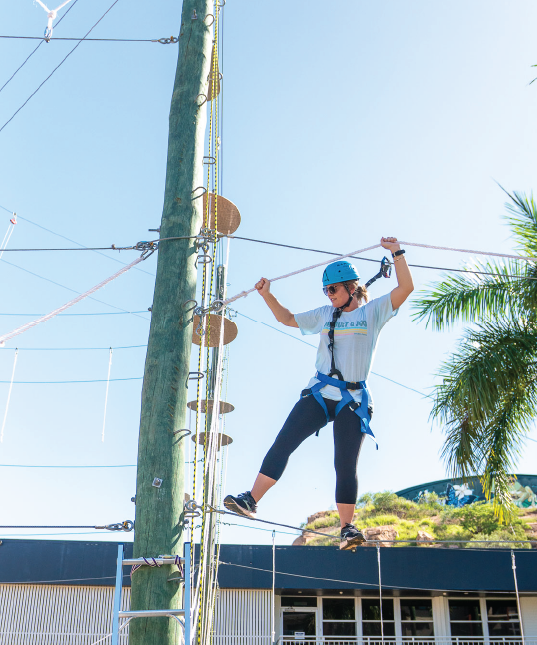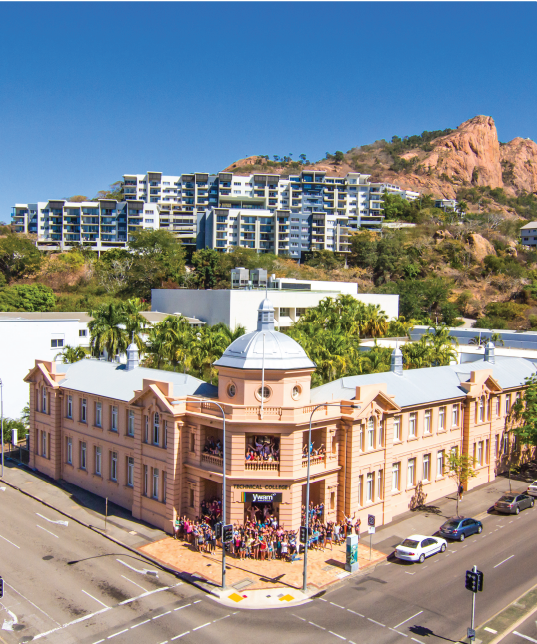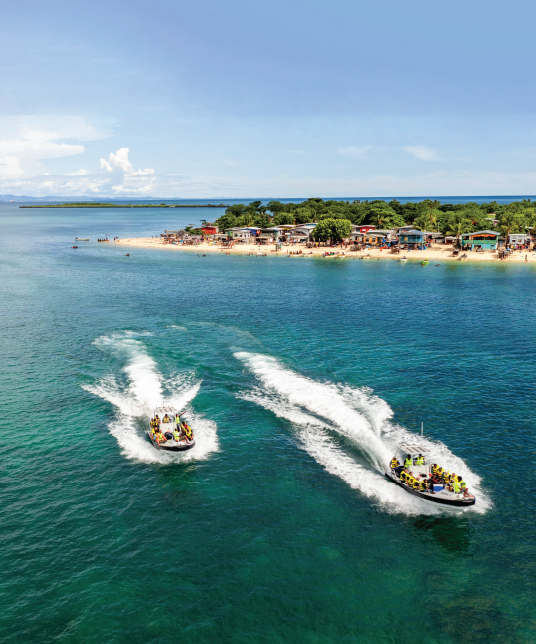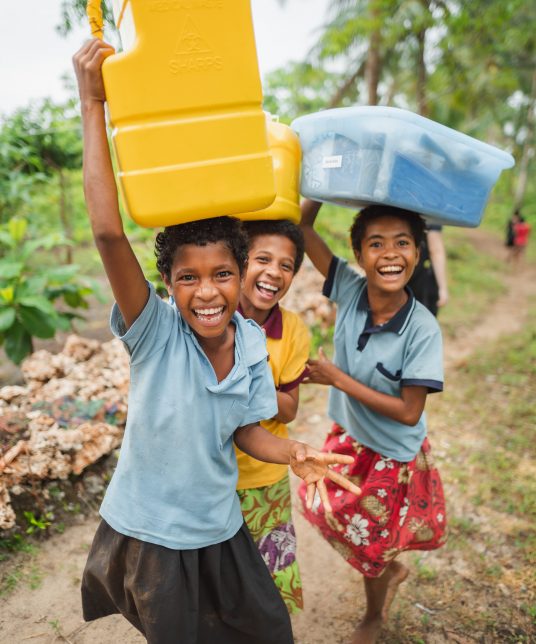
Global Health Gap Year
Our Global Health Gap Year calls those whose hearts beat to see communities thriving – physically, socially, emotionally, and spiritually.
The Global Health Gap Year is designed for both those that have experience in the health / development industry, and for those who simply have a heart to pursue missions in the healthcare context. The majority of our gap year students are 18-35 year olds. If you are over 35, please contact us, we would love to discuss your options!
Whatever your journey might be, this is not your average gap year experience! The Global Health Gap Year is about meeting real needs, bringing hope, and seeing your life transformed in the process.
How it all works
Step 1: Build your foundations
The first five months of your journey will begin with a Discipleship Training School either in Townsville, Australia or Port Moresby, Papua New Guinea.
During the first half of the course, you will learn about different topics each week from experienced speakers.
Topics may include:
- The Nature and Character of God
- Hearing God’s Voice
- Identity
- Relationships
- Biblical Worldview
- Living a Missional Life
You will also be placed in a small group to help you further unpack your training with others on a weekly basis. Further to this, you will be matched with a mentor who will catch up with you regularly to check in on your faith journey.
The DTS includes 13 weeks of lectures and nine weeks of outreach.
DTS in Port Moresby
The Nations and Spheres DTS is run at our YWAM Medical Ships Campus in Port Moresby, Papua New Guinea.
The DTS includes opportnities for discipleship, hands-on missions experience, and an opportunity to make history as we engage in Papua New Guinea.
The Nations & Spheres DTS has a particular focus on championing you to engage in different spheres of society; contributing toward the vision of building healthy lives, communities, and nations.
Find our more on our Port Moresby DTS page.
DTS in Townsville
Townsville is located in tropical North Queensland near the top of Australia. Right on our coast is the Great Barrier Reef and Magnetic Island.
Our Campus is located in Townsville’s city centre, close to the beach, cafes, and shops.
DTS options in Townsville include: Challenge: High Ropes, Youth Ministries, Media & Radio, and Global Health. Find out more on our Townsville DTS page.
On completion of the DTS in Australia, you will receive a 11290NAT – Certificate III in Discipleship
Step 2: Dive in deep into healthcare missions
HLT31220 – Certificate III in Basic Health Care
HLTAID009 – Provide Cardiopulmonary Resuscitation
HLTAID013 – Provide First Aid in remote or isolated site
HLTAID014 – Provide Advanced First Aid
During the next 22 weeks of your gap year, you will complete our Introduction to Global Health and Development School. You will be immersed in a powerful combination of essential basic healthcare knowledge and community development training, with a focus on preventing illness, promoting holistic wellbeing, and empowering communities to develop their strengths.
Your course will be at our Jetty Campus in Port Moresby, Papua New Guinea where you will undergo 12 weeks of training and 10 weeks of outreach with hands on experience in communities in Papua New Guinea.
On completion of this course you will have attained a Certificate III in Basic Health Care (an Australian qualification for community health advocates) as well as multiple First Aid units. The Certificate III in Basic Health Care program is suitable for people wishing to pursue a career in health with the qualification providing a good base of knowledge for many health care industries including ambulance, nursing, security and Defence Force medical assistant.
Graduates of this course are well placed to step into a range of further training options including our Purpose & Leadership Development.
Dates and Cost
Dates
2024
- 28 January – 13 December 2024
Cost
Costs will vary depending on where you decide to do the DTS portion of your gap year.
DTS in Townsville:
$6,490AUD course fee*
$1000 – $1800AUD outreach travel expenses
DTS in Port Moresby:
6,000 PGK course fee* – C nation price
12,800 PGK course fee* – B nation price
15,800 PGK course fee* – A nation price
+ Outreach travel expences to be confirmed once the outreach locations are decided
IGHD:
6,000 PGK course fee* – C nation price
12,800 PGK course fee* – B nation price
15,800 PGK course fee* – A nation price
+ Outreach travel expences to be confirmed once the outreach locations are decided
Your course fee includes all the training you will receive during the DTS and IGHD, and 19 weeks of outreach during your Global Health Gap Year. The training includes all of your meals, accommodation, laundry facilities, airport transfers, and use of our campus facilities including library, lecture rooms. Your outreach includes all of your meals, accommodation, outreach shirt, visa (if required) and field supplies.
Your outreach travel expenses will cover variable costs such as flights, ferries, busses, etc.
YWAM MS uses information supplied by the United Nations and other sources to rank countries in three categories (A,B,C) based on their per capita income.
To see your nation category, click here.
*Does not include travel costs to and from Townsville or Papua New Guinea for the lecture portions of the schools, food or accommodation between courses, visa, health insurance and immunisations.
Accreditation
11290NAT Certificate III in Discipleship Units
NAT11290001 – Develop relationship with God
This unit describes the performance outcomes, skills and knowledge required to successfully respond to the truth that God makes Himself known to all people and to God’s grace in initiating relationship. It requires the ability to gain life-changing understanding of who God is and how He communicates through the Bible, prayer, and worship in order to adjust beliefs and behaviours.
NAT11290002 – Develop Christian character
This unit describes the performance outcomes, skills and knowledge required to make responsible decisions that bring joy to God and glorify Him in response to God’s holiness, lordship and love. It requires the ability to live in right relationship with God and others. It also requires the ability to recognise Jesus’ authority and respond in surrender and dependence in all areas of life.
NAT11290003 – Contribute to a Youth With A Mission community
This unit describes the performance outcomes, skills and knowledge required to successfully contribute to an international, apostolic missions community of Youth With A Mission. It requires the ability to understand Youth With A Mission’s purpose, beliefs and values to make a positive contribution to the community. It also requires the ability to live in right relationship with God, authorities and others.
NAT11290004 – Practice spiritual authority
This unit describes the performance outcomes, skills and knowledge required to exercise the authority every believer has to make a significant contribution for spiritual breakthrough. It requires the ability to walk in spiritual authority through intercession, worship and strategic prayer. It also requires the ability to recognise the activity and influence of Satan and the authority given to every believer through Jesus Christ.
NAT11290005 – Contribute to evangelism
This unit describes the performance outcomes, skills and knowledge required to successfully proclaim the truth that God pursues the lost and desires all to be saved through Jesus Christ. It requires the ability to communicate God’s truth in a way that demonstrates His character. It also requires the ability to show God’s love through acts of compassion.
NAT11290006 – Participate in a Christian missions outreach team
This unit describes the performance outcomes, skills and knowledge required to successfully respond to the truth that God makes Himself known to all people and to God’s grace in initiating relationship. It requires the ability to gain life-changing understanding of who God is and how He communicates through the Bible, prayer, and worship in order to adjust beliefs and behaviours.
HLT31220 units:
CHCDIV001 Work with diverse people
The skills and knowledge required to work respectfully with people from diverse social and cultural groups and situations, including Aboriginal and/or Torres Strait Islander people.
HLTAAP001 Recognise healthy body systems
The skills and knowledge required to work with basic information about the human body and to recognise and promote ways to maintain healthy functioning of the body.
HLTAID011 Provide first aid
The skills and knowledge required to provide a first aid response to a casualty in line with first aid guidelines determined by the Australian Resuscitation Council (ARC) and other Australian national peak clinical bodies.
HLTINF006 Apply basic principles and practices of infection prevention and control
The skills and knowledge required to apply basic infection prevention and control principles in work settings including implementing standard and transmission-based precautions and responding to risks.
HLTOUT010 Communicate in complex situation to support health care
The skills and knowledge required to effectively communicate with patients, colleagues, health providers and ambulance service callers in complex situations using verbal and non-verbal interactions. It requires workers to address these significant challenges in the context of providing a health care service.
HLTWHS002 Follow safe work practices for direct client care
The skills and knowledge required for a worker to participate in safe work practices to ensure their own health and safety, and that of others in work environments that involve caring directly for clients. It has a focus on maintaining safety of the worker, the people being supported and other community members.
HLTWHS006 Manage personal stressors in the work environment
The skills and knowledge required to maintain health and wellbeing by preventing and managing personal stress.
HLTAAP002 Confirm physical health status
The skills and knowledge required to obtain and interpret information about client health status and to check a client’s physical health. It requires a detailed knowledge of anatomy and physiology.
HLTHPS001 Take clinical measurements
The skills and knowledge required to prepare for, obtain and record simple clinical measurements.
HLTHPS006 Assist clients with medication
The skills and knowledge required to prepare for and provide medication assistance, and complete medication documentation. It also involves supporting a client to self-administer medication.
BSBMED301 Interpret and apply medical terminology appropriately
The skills and knowledge required to understand and respond to instructions; to carry out routine tasks and communicate with a range of internal/external clients in a medical environment; as well as use appropriate medical terminology
Additional First aid units:
HLTAID009 Provide Cardiopulmonary Resuscitation
The skills and knowledge required to perform cardiopulmonary resuscitation (CPR) in line with the Australian Resuscitation Council (ARC) guidelines.
HLTAID013 Provide First Aid in remote or isolated site
The skills and knowledge required to provide a first aid response to a casualty in a remote or isolated site over an extended period of time until medical assistance is provided, or evacuation occurs.
HLTAID014 Provide Advanced First Aid
The skills and knowledge required to provide an advanced first aid response to a casualty in line with first aid guidelines determined by the Australian Resuscitation Council (ARC) and other Australian national peak clinical bodies.
*for recognition of prior learning/course credit, please see the Staff and Student Handbook.
Austudy, Abstudy and Youth student allowance is available for Australian applicants.
Prerequisites
Applicants need to have graduated High School or equivalent and has a sense of call to Christian Missions. Students need to successfully complete the Discipleship Training School in order to continue onto the Introduction to Global Health and Development.
International Students
When overseas students apply, proficiency in English will be specifically assessed. Offers of placement in a course will include any applicable requirements for English language proficiency. Copies of documents, or telephone interviews will be used to verify information provided by students on language proficiency. Bridging courses will be recommended where these are deemed necessary.
International students on student visas are required to maintain satisfactory academic progress and attendance to meet the requirements of the student visa.
YWAM Townsville is bound by the National Code of Practice for Registration Authorities and Providers of Education and Training to Overseas Students. The Department of Education, Employment and Workplace Relations regulates the education and training sector’s involvement with overseas students studying in Australia on student visas. It does this through the Education Services for Overseas Students legislative framework. This protects Australia’s reputation for delivering quality education services and the interests of overseas students, by setting minimum standards and providing tuition and financial assurance.
The legislation mandates a nationally consistent approach to registering education providers so that the quality of the tuition, and care of students, remains high. The professionalism and integrity of the industry is further strengthened by the ESOS legislation’s interface with immigration law. This imposes visa related reporting requirements on both students and providers. A simple explanation of the framework is located here.
Meet our students
You may also like
